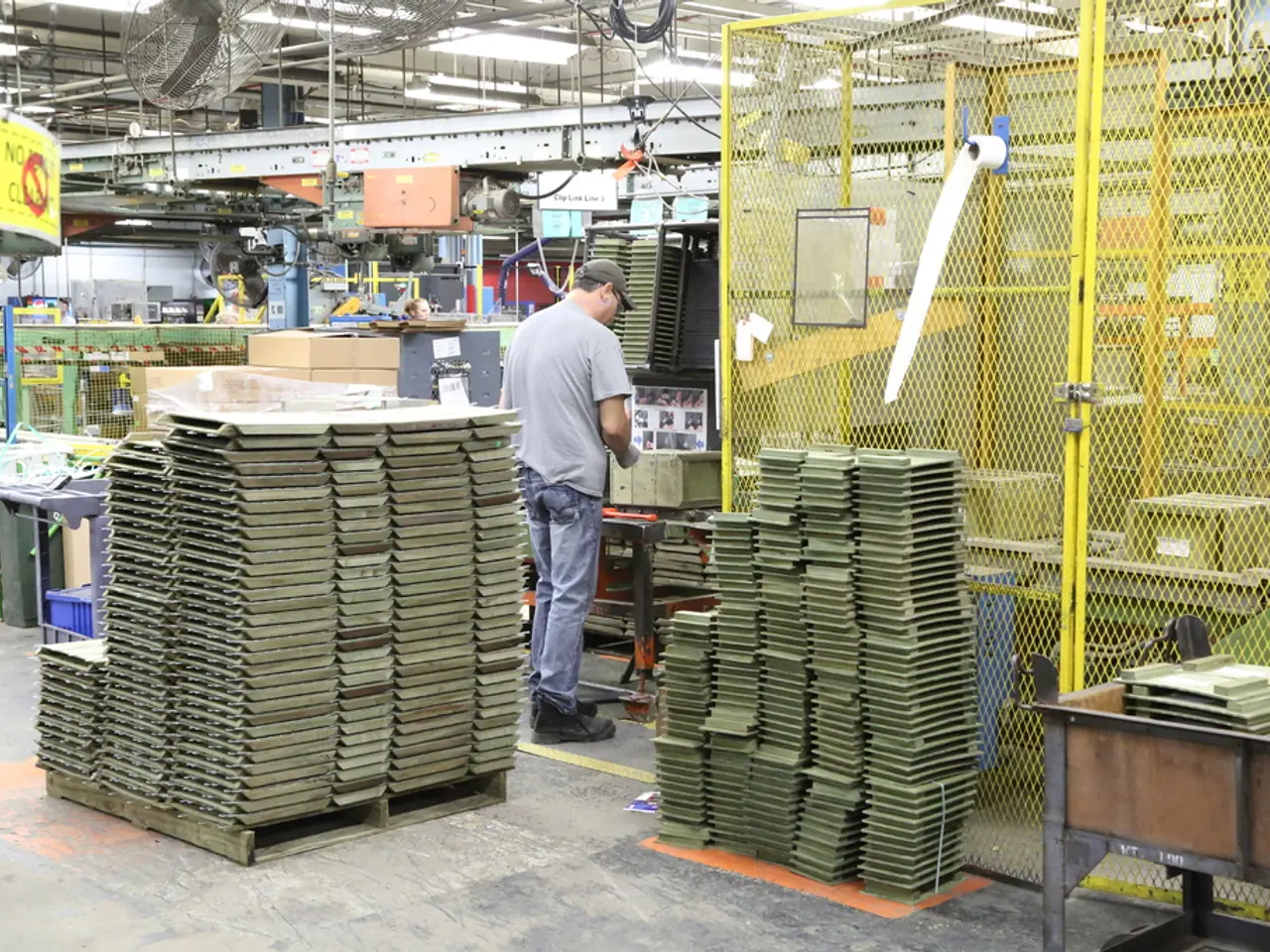Sustainable Production in Industrial Operations
In the face of growing concerns about climate change, manufacturers are being called upon to address the causes and effects of their significant carbon emissions. This shift towards sustainability is a global trend, with many governments worldwide adopting regulations and limitation mechanisms to encourage companies to adopt eco-friendly practices.
The discussion is not just about reducing emissions, but also about mitigating and reducing the effects of climate change. Failure to comply with these regulations can result in hefty fines and negative publicity, as well as the potential loss of a business's ability to operate in the country.
The urgency of the situation is underscored by the facts. The average land surface air temperature has increased more than 1° C since the pre-industrial era, and February 2024 was the hottest February on record, marking the ninth straight month of record-high monthly temperatures. These trends have led to an increase in natural disasters, with the average number of natural disasters per year jumping 79% between 1980 and 1999 and 2000 and 2022, from 217 to 388, respectively.
The World Wide Fund for Nature's (WWF) Living Planet Report found a 69% decrease in monitored wildlife populations since 1970, attributing this loss of biodiversity to climate change and the unsustainable use of resources. These findings highlight the need for action, and the EU CSRD regulations are intended to enable investors and consumers to make informed, sustainable decisions.
Industrial manufacturing made up nearly one-quarter (24.2%) of energy-related emissions in 2020. As a result, manufacturers are increasingly turning to new sustainability management and carbon footprint tracking platforms to help them set a transparent baseline of their carbon footprint.
These platforms offer industry-specific data scope, management, analysis, and automated reporting to meet new regulations like the EU CSRD. Examples include IntegrityNext, which provides comprehensive supplier sustainability data, AI-driven analysis, and global supply chain coverage; Planted.green, which offers AI-supported ESG management for CO2 tracking and reporting; and Universal Investment’s ESG Hub, focused on integrating sustainability in capital management with transparency and partner collaboration.
However, many companies, especially SMEs, struggle with collecting sustainability-related data. This is often due to a lack of the right tools, poor data quality, or not knowing what data to collect or how to collect it. To address this, these platforms should interpret data and assess different scenarios before offering optimisation and emission mitigation strategies.
Four aspects identified in research drive manufacturers' sustainability initiatives: cost savings, social pressure, corporate values, and regulations. As the costs of emissions become increasingly apparent, the financial benefits of sustainability are becoming more evident. At the same time, social pressure and corporate values are driving companies to take action, while regulations are the biggest driver of sustainability initiatives at scale.
In conclusion, the time for manufacturers to start looking at available solutions that help them collect and contextualise large amounts of differing data, interpret the data for optimisation and emission mitigation strategies, and automate reporting is now. By adopting these practices, manufacturers can not only comply with regulations but also engage with stakeholders, reduce their carbon footprint, and contribute to a more sustainable future.
Read also:
- Deepwater Horizon Oil Spill: BP Faces Record-Breaking Settlement - Dubbed 'Largest Environmental Fine Ever Imposed'
- Cars' Environmental Impact Explained
- The German automobile sector requires advancement in environmentally friendly steel production
- Fossil fuels remain the primary energy source for heating in Baden-Württemberg








